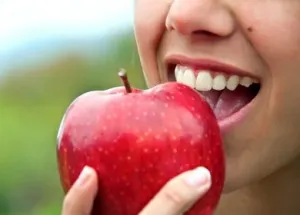Do you ever feel like you spend most of your time with your hand caught in the cookie jar, eating something you are not supposed to? Perhaps you try extremely hard to stay on top of all the cutting edge health news and still find yourself caught in a web of information, spinning in circles.
Maybe you are even at the point where you wonder, is there anything safe left to eat. With so much talk about what you can’t eat, here is a refreshing look at the many things you can eat and how to distinguish between what is healthy and what is not.
What is Food?
The technical definition of food contains some very important words that help to determine if a substance has any real worth to the body. The words nourishing, life sustaining, energy and promotion of growth are all paramount to the definition of food.
If something has little or no nutritional value (that is that it can not be broken down into useable energy), it is technically not food, it is just a substance. So, when we look at food with these lenses on we are quickly able to make some distinctions between what is best to eat and what is best left on the shelf.
Food Rules
Investigative journalist and health advocate Michael Pollan warns us to avoid anything that is an edible-like substance and stick to real food. He gives readers a list of rules for determining whether or not something has any nutritional value.
- If your grandmother or great grandmother would not recognize it as food, don’t eat it.
- If it has five or more ingredients do not eat it.
- Shop on the perimeter of the grocery store.
- Don’t eat anything that won’t rot apart from honey.
- If you can not pronounce any of the ingredients, leave it on the shelf.
In her book Real Food, author Nina Planck tells readers that real food is old, it has been eaten for a long time. Real food includes meat, fish and eggs. Real food, Planck says is also traditional. This means that fruits and vegetables are best when they are fresh, local and seasonal. Grains are always best whole, fats and oils unrefined, and food is prepared in a traditional manner, not mechanically processed or radiated in the microwave.
Real food is farmed, processed and prepared in ways that have been around for thousands of years. Real milk and real beef come from grass-fed cows that range free on pasture that is not tainted with pesticides or chemical fertilizers, real eggs come for hens that eat grubs, not grain, real lard is not processed, olive oil is cold pressed and tofu comes from fermented non-gmo soybeans. Read bread is made with yeast that rises. Real food is the opposite of industrial food.
In the book Real Food For a Change, the authors take a stand for real food noting that it is fresh, grown locally without harmful chemicals or additives. We see a similar thread running through all of these thoughts on real food; it is as close to its natural state as possible and left that way.
Thoughts on Organic

One caveat with organic foods is to watch your consumption of packaged organics. It is still far healthier to stick to whole foods than it is to anything boxed, bagged or canned.
Switch to Natural Sugar
If you consume sugar of any kind, whether it is organic or not, it is still going to cause an adverse reaction in your body. High fructose corn syrup is especially damaging and is found in a wide range of processed foods from sauces, to soups, cereals and baked goods. Eliminating sugar from your diet is one of the best things that you can do for your health.
If you are like most people, you still have a little bit of a sweet tooth. Natural sweeteners that do not cause a spike in blood sugar are the best alternatives. Two great options are stevia, which is the ground up leaf of an herb, and raw coconut crystals. Raw honey that is unprocessed and unfiltered along with pure maple syrup can be consumed in moderation.
-The Alternative Daily
